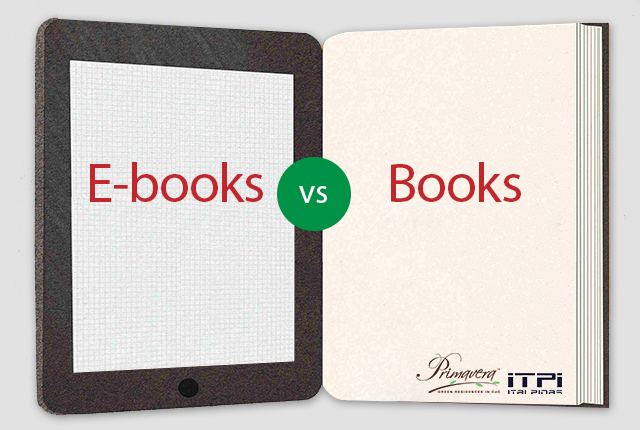From cassette tapes to CDs, from Walkman’s to MP3 players, and from VHS to DVDs, we know that the race is getting even tighter now. The next round of format battle begins, who will come out on top: e-books or the traditional printed books?
There are many factors to consider when discussing the matter of e-books vs. printed books, but ultimately, it boils down to the reader’s preference.
Printed words and papers’ crisp
Avid fans of printed books claim that there’s still nothing like the smell of paper and the rustle of the pages as the reader flips gently through the book with their fingers. There’s something deeply intimate about the entire experience, they claim, and it’s one that cannot be derived from the cold, electronic e-book version.
Apart from these physical considerations, however, studies have shown that when it comes to reading comprehension, printed books are still the better choice. The study found out that literacy building in children is more effective with a printed book than with an e-book because of the centralized focus on the story and the opportunities for interaction between the child and the parent reading the book together.
The world has gone digital
On the other hand, those who prefer the e-book often say that the device takes lesser weight on their shoulders– literally. Yes, packing for trips is bad enough as it is, but it becomes doubly so when challenged with the task of choosing which book to bring. With the e-book, however, a reader can take hundreds of books with them on the journey, and only take up a few square inches in their carry-on bag.
For e-books, on the other hand, there are students and medical professionals who prefer using these for efficiency and prevent further hassle. Practicality-wise, using e-books is way “cheaper” than those of bulky and heavy books we see in book stores. Imagine ten 1000-page medical or accounting books in a one half-kilo e-book reader or tablet, how’s that for hassle-free student life, ey? And what is news if it’s read tomorrow, anyway? With wifi-ready e-book reader, news and magazines are just a click away.
Aside from the debatable existence of both, there’s also this matter of production cost. Obviously, printed books cost more because of the resources needed. E-book reader manufacturers, though, spend the bulk of their production cost on the device itself, and from then on everything is digital and a fraction of the cost per book, compared to printed books.
The greater question: Which is more eco-friendly?
Well, clearly, whether the readers love the feel of a new paperback or hardcover book in our hands, paper smell that is fresh from the press or the crisp feel of the pages, and even the smell of the ink, we cannot object to the person doing the reading in which type they choose.
However, in this kind of world we live, where there is environmental degradation, it is best to be conscious of what needs to be acted upon accordingly. We can change the world we live in, not just by tree planting or clearing the roads from garbage, but also by simply shifting from the printed books to e-books.
The world has gone digital for many reasons. These are for convenience, efficiency, shareability, and conservation (of documents, photos and videos). Since e-books unquestionably save paper and therefore trees, it also conserves energy as it takes a lesser toll in electricity consumption in charging.
For an avid reader who reads more than 10 books per year, consider purchasing a device that will let you do other things, like Web surfing or e-mailing, to bring down your overall carbon footprint.
In conclusion, readers actually help the Earth by using their e-book reader devices rather than buying paper books. So after convenience, efficiency, shareability and conservation, they can surely add eco-friendly to the list of digital advantages. While we will miss the wisp of a turning page, it is safe to say that e-books and e-book readers are the green way after all.
Currently, sustainable developer Primavera Residences supports Cagayan de Oro Rugby Football Club as they are gathering educational books for a book donation drive that would benefit schools in remote areas of Papua New Guinea. They will accept encyclopedias, text books, and any other educational materials. As a support to this worthwhile and eco-friendly cause, those who wish to donate may drop off your donations at the Primavera Sales Office at 2/F Primavera Residences, Pueblo de Oro Business Park, Cagayan de Oro City from 9am to 6pm Mondays to Saturdays until the end of the month of February.
Do you have any unused books? Let’s make these once again useful by donating these now and spread the joy of learning to the children of Papua New Guinea.
For more information, visit the official page of Primavera Residences or the CDO Rugby Club Official FB page.


